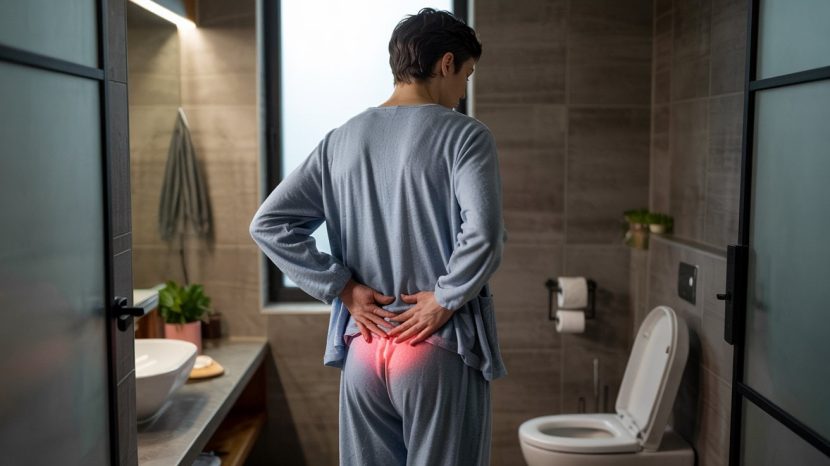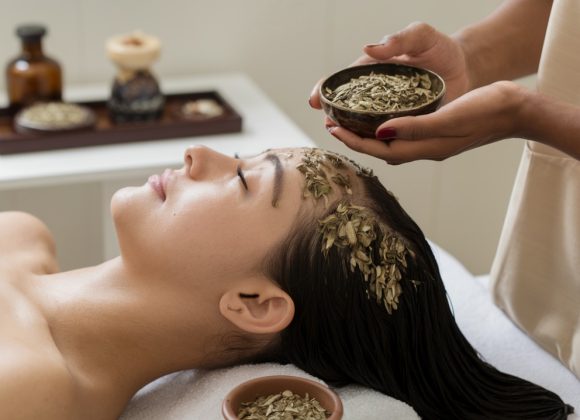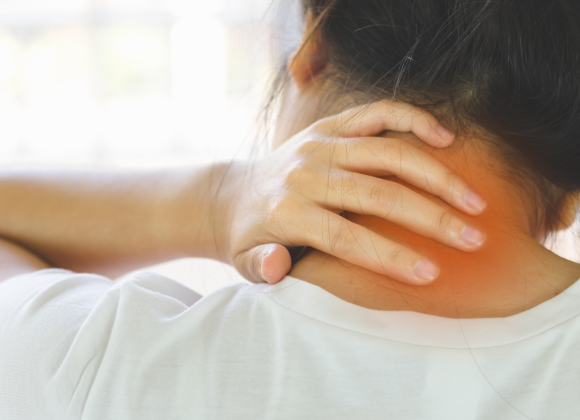What Are Piles?
Piles, or hemorrhoids, are swollen, inflamed veins in the rectal and anal area that can cause pain, discomfort, bleeding, and itching—especially during bowel movements. They can be internal, external, or even prolapsed. Modern medicine treats piles with creams, suppositories, or surgeries, but Ayurveda approaches the condition holistically, focusing on restoring the balance of body energies (doshas) and healing the root cause.
Did you know? According to research by NIH, about 50% of adults over age 50 suffer from piles at some point in life.
Ayurveda’s View on Piles (Arsha)
In Ayurveda, piles are referred to as Arsha, meaning “enemy,” symbolizing the pain and discomfort they bring. This condition arises primarily due to an imbalance in the Vata (air) and Pitta (fire) doshas. Poor digestion leads to the accumulation of toxins (ama) in the body, especially in the gut, resulting in chronic constipation, bloating, and inflammation in the anal region. Key contributing factors include long-standing constipation, low fiber intake, irregular eating habits, a sedentary lifestyle, excessive consumption of spicy, fried, or non-vegetarian food, suppression of natural urges like defecation, and emotional stress or anxiety—all of which disturb the digestive fire (agni) and worsen the condition.
Symptoms of Piles You Shouldn’t Ignore
- Bleeding during or after bowel movements
- Pain or discomfort while sitting or passing stools
- Swelling or lump around the anus
- Itching, irritation, or burning sensation
- Feeling of incomplete evacuation
- Mucus discharge from the anus
Ayurvedic Home Remedies for Long-Term Relief
Ayurveda doesn’t just treat symptoms—it detoxifies, rejuvenates, and strengthens the digestive system. Here are time-tested remedies:
1. Triphala Churna—The Natural Gut Cleanser

Triphala is a classic Ayurvedic blend made from three fruits—Indian gooseberry (amla), chebulic myrobalan (haritaki), and belleric myrobalan (bibhitaki). Together, they support digestion and help detoxify the body. Though gentle on the stomach, Triphala cleanses the colon, eases constipation, and balances all three doshas: Vata, Pitta, and Kapha. Mix one teaspoon of Triphala powder in warm water and drink it before bed for best results.
2. Triphala Sitz Bath—Soothing Relief for Hemorrhoids
A sitz bath with triphala decoction calms inflamed tissues and relieves piles discomfort. To prepare, boil one liter of water, add two teaspoons of Triphala powder, and let it cool to lukewarm. Sit in the decoction for 10 to 15 minutes, twice a day. It helps ease burning, swelling, and irritation naturally.

3. Haritaki—The Gut’s Best Friend
Haritaki is known in Ayurveda as the “King of Herbs.” It acts as a powerful digestive tonic and supports natural cleansing. Mix 1 to 2 grams of Haritaki powder in lukewarm water and drink it on an empty stomach in the morning. Add a little jaggery to improve taste and enhance its mild laxative effect.
4. Nagkesar & Lajjalu—The Healing Duo
Nagkesar (Indian Rose Chestnut) and Lajjalu (Touch-Me-Not Plant) work together to ease symptoms of piles. Take 250 mg of Nagkesar powder with honey twice a day to reduce bleeding and aid healing. For external relief, make a paste of fresh Lajjalu leaves and apply it directly. These herbs help shrink swollen tissues and relieve pain.

5. Isabgol (Psyllium Husk)—Gentle Fiber Boost
Isabgol, or psyllium husk, is a natural fiber that makes stool easier to pass. It prevents straining and supports smooth bowel movements. Mix one tablespoon in warm water or milk and take it at bedtime. This helps relieve constipation and eases piles-related discomfort.

Ayurvedic Diet Plan for Piles
What to Eat for Relief from Piles
Stick to soft, easy-to-digest foods. Go for warm, cooked veggies like bottle gourd, pumpkin, and spinach. Add high-fiber fruits such as papaya, figs, bananas, and soaked raisins to keep things moving smoothly. A spoon of ghee helps lubricate the gut, and whole grains like oats, barley, and rice are great for digestion. Don’t forget a glass of buttermilk with a pinch of roasted cumin—it cools the body and aids digestion.
What to Avoid
Avoid spicy, fried, and junk foods—they only make things worse. Say no to red meat, alcohol, and too much caffeine. Cold drinks, sodas, and refined flour (like maida) can cause constipation. Try to follow a cooling, non-spicy, high-fiber diet—it’s the best way to feel better faster.
Real Healing, Rooted in Tradition
Ayurveda teaches us that long-term healing begins with daily discipline—in how we eat, sleep, think, and treat our body. Piles can be painful and persistent, but with the Ayurvedic path, you don’t just treat the symptoms—you heal the system.




